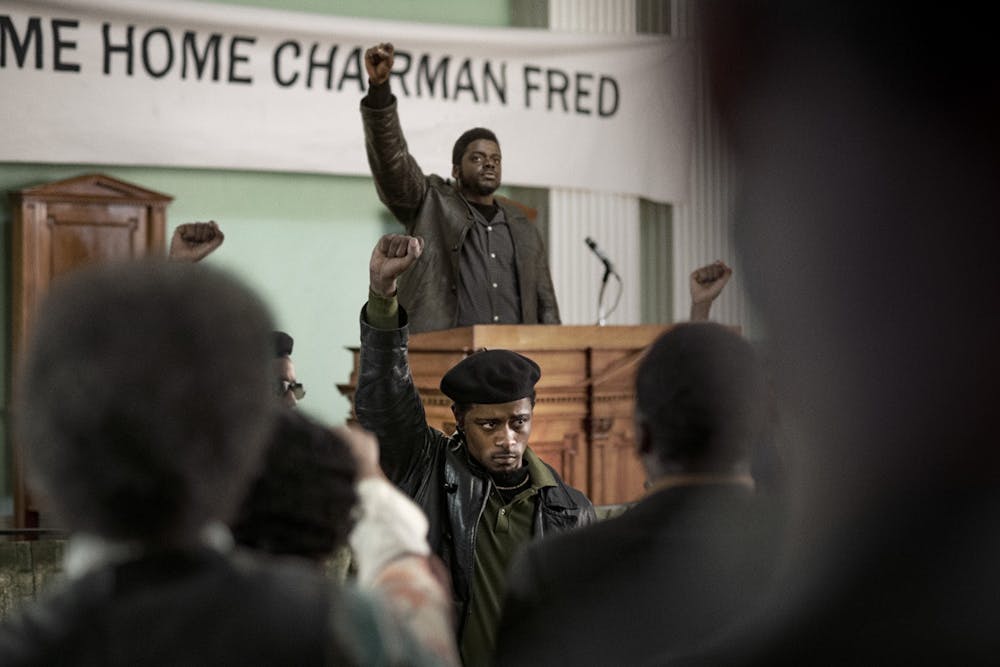“Anywhere there’s people, there’s power.”
No film has made that point more apparent than “Judas and the Black Messiah,” which brought to life the mantra so often repeated by its subject, Deputy Chairman of the Illinois Black Panther Party, Fred Hampton.
The film starts by focusing on Bill O’Neal (LaKeith Stanfield), who, after getting caught stealing a car and impersonating a federal agent in 1968, is recruited by FBI agent Roy Mitchell (Jesse Plemons) to infiltrate the Illinois Black Panther Party as an informant. His goal is to provide inside information on Hampton (Daniel Kaluuya) so the FBI can prevent him from becoming too popular.
Kaluuya’s portrayal of Hampton is stunning. From his first appearance to his last, he captivates the audience and takes them on an emotional journey. He takes an already excellent screenplay — which does well to capture the broader themes of racial tension and the fight for equality while communicating them with believable tone and word choice — and brings it to life.
His speech after he was released from jail may be one of the best moments captured by film this year.
Viewers truly feel impelled to become the revolutionaries Hampton and his audience so proudly proclaim they are. All the while, Mitchell and O’Neal lock eyes, ratcheting up the suspense of an already heated moment. It was an Oscar moment for Kaluuya — my pick for Best Supporting Actor — whose charisma echoes that of Hampton as he tried to unite the disadvantaged groups of Chicago under one banner.
And unite them, he does — at least, while he could.
“Judas” immediately touches on the systemic racism that Hampton and the Panthers were confronted with from the authorities.
FBI Director J. Edgar Hoover (Martin Sheen) and all the law enforcement officials below him use deceptive tactics to try and keep Hampton quiet, including arresting him on arbitrary charges and harming innocent people to try and get their way. Police brutality is also at the forefront, with Chicago officers provoking the Panthers only to make them the victims of unnecessary violence.




